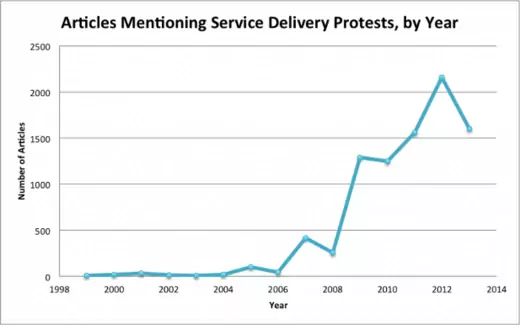- China
- RealEcon
- Topics
-
Regions
Featured
-
Explainers
Featured
Interactive by Olivia Angelino, Thomas J. Bollyky, Elle Ruggiero and Isabella Turilli February 1, 2023 Global Health Program
-
Research & Analysis
Featured
Featuring Zongyuan Zoe Liu via U.S.-China Economic and Security Review Commission June 13, 2024
-
Communities
Featured
Webinar with Carolyn Kissane and Irina A. Faskianos April 12, 2023
-
Events
Featured
Virtual Event with Emma M. Ashford, Michael R. Carpenter, Camille Grand, Thomas Wright, Liana Fix and Charles A. Kupchan June 25, 2024 Europe Program
- Related Sites
- More
September 5, 2019
NigeriaThe “super camp” strategy is driven chiefly by the military’s apparent inability to defend itself against constant ISWA raids on poorly constructed military barracks in rural areas. Under the new strategy, military personnel will be based in a few, well-constructed “super camps,” which ISWA presumably cannot overrun. While the military may have reduced the potential for casualties and theft of military materiel, it has also reduced its ability to combat ISWA in rural areas. This strategy appears to also be the most recent formulation of the military’s “fortress strategy,” which seemingly was never implemented after its initial 2017 announcement.

March 20, 2020
COVID-19Currently, African healthcare predominantly relies on transcription and transport of physical paper from point A to point B. Paper orders can often travel hundreds of kilometers by motorcycle from clinics to a centralized diagnostic lab. The pandemic’s speed in reaching and spreading in Africa currently lags behind that of the developed world. As of March 20, 254,653 COVID-19 cases have been confirmed in 183 countries. Africa has reported a total of 745 COVID-19 cases from 34 countries, or 0.3 percent of global infections. The other 20 African nations have not yet officially declared any cases.

August 27, 2019
South AfricaOn August 21, South Africa’s Equality Court ruled that gratuitous displays of the Apartheid-era flag counted as hate speech and discrimination. Confronting history head on, Judge Phineas Mojapelo wrote in his ruling that the flag represents “a vivid symbol of white supremacy and black disenfranchisement and suppression,” and flying it, “besides being racist and discriminatory, demonstrates a clear intention to be hurtful.”

August 13, 2019
NigeriaNigeria returned to democracy in 1999, after two long periods of military rule—1966–79 and 1983–98—during which the military wielded executive, legislative, and judicial power. This has left a historical legacy of a powerful military used to doing whatever it wants with no questions asked. On return to democracy, it also left the country with a political class that is wary of military power, and unwilling and unable to impose democratic civilian oversight of the military.

April 8, 2014
Sub-Saharan AfricaThis is a guest post by Le Chen, Janice Dean, Jesper Frant, and Rachana Kumar. They are Master of Public Administration students at Columbia University’s School of International Public Affairs. They …

 Online Store
Online Store